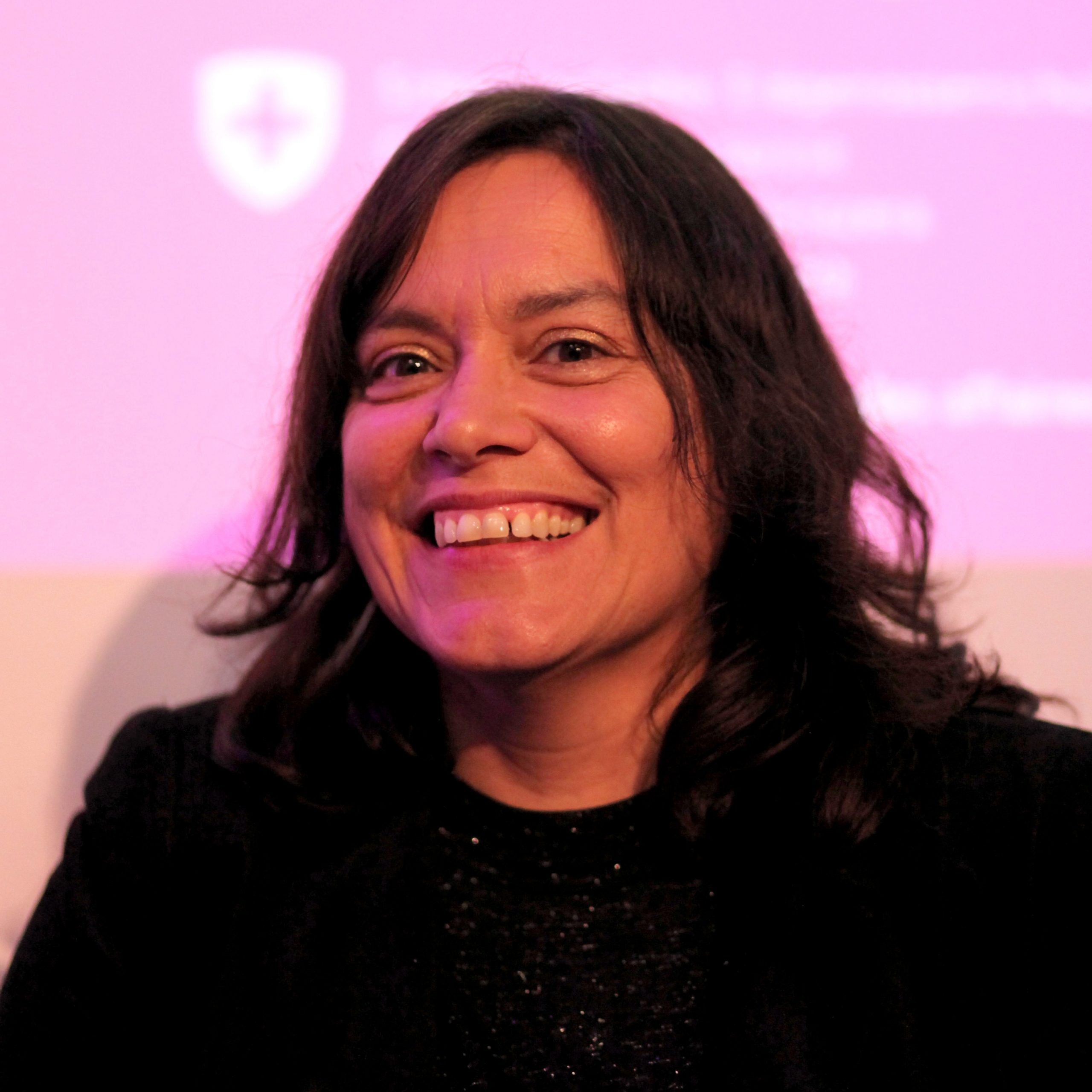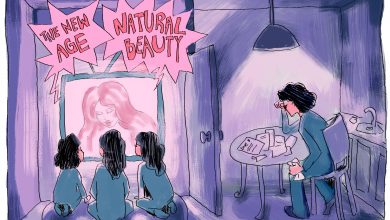Feminist Theorist Thursdays: Sara Ahmed

Image Description: A photograph of author Sara Ahmed smiling.
“To live a feminist life is to make everything into something that is questionable. The question of how to live a feminist life is alive as a question as well as being a life question.”
~Sara Ahmed, “Living A Feminist Life”
Sara Ahmed is a British-Australian author who describes herself as a “feminist killjoy, affect alien, [and] angry queer woman of color.” Ahmed’s work focuses on lesbian feminism, feminism of color and racial and cultural studies. In her popular work “Living a Feminist Life”, Ahmed teaches women to be comfortable with disrupting dominant patriarchal systems. The Killjoy Manifesto embodies the feminist killjoy—a deconstruction of dominant Eurocentric, masculine, and heteronormative tropes of “happiness,” “joy” and “comfort” by finding happiness in causing discomfort.
Ahmed was born in Salford, England to an English mother and Pakistani father. She moved to Adelaide, Australia in the early 1970s, was shaped by her experiences as a queer, biracial migrant of color. She was isolated as a child because of her differences from the rest of her peers. Ahmed received her B.A. at Adelaide University in English, Philosophy and History and her doctorate in Critical and Cultural Studies at Cardiff University. These differences influenced her earlier works, such as “Differences that Matter: Feminist Theory and Postmodernism.”
In her research, Ahmed draws on postmodern concepts like Gilles Deleuze’s theory of affect: the idea that experiences of a subject fundamentally shape and alter the subject’s performance and desires. According to affect theory, the subject is fluid—constantly changing and reshaping based on the external world around it. Affect theory can also be contextualized to gender and queerness, like Judith Butler’s affective theory of gender as a performative construction based on social norms and expectations, such as girls preferring the color pink or boys being socialized not to cry.
Queer feminists of color exist at the intersections of various identities, and no one identity can be made distinct from the next. For example, a queer feminist of color’s queerness cannot be separated from their gender, and thus their approaches to feminism are intersectional. Ahmed argues that queer feminists of color exist outside the heteronormative and Euro/Anglo-centric gender roles and performances that are ascribed to them, as they are shaped and defined by a rejection of those roles. Instead, people can redefine themselves based on their own desires.
As a lesbian feminist of color, Ahmed draws upon works by Audre Lorde, Cherie Moraga and other lesbian feminists of color. In “Living A Feminist Life,” Ahmed describes diversity work, which is the work done to open up exclusive spaces to those that had previously been excluded. Queer feminists of color do diversity work every day as an act of discomfort in a society dominated by white, patriarchal, heteronormative and classist politics of comfort. For example, Ahmed describes the presence of the queer feminist of color as similar to sitting in a chair that is molded to fit the body of someone else, and views the discomfort of adjusting to that chair as the psychological exhaustion that queer women of color face constantly.
To embody the killjoy’s perspective, Ahmed encourages feminists to get comfortable with the discomfort—everything from correcting racist uncles at Thanksgiving dinner to calling out friends on their sexist comments—feeling joy in (literally) killing the joy of pervasive systems of oppression. In this way, Ahmed believes that the feminist killjoy can be embodied by everyone in day-to-day life.
As a companion to her bestselling work “Living A Feminist Life”, Ahmed independently publishes a blog, where she discusses queer, feminist and racial studies. Her blog focuses on making her feminist study and research accessible to a wider audience outside of academia. Ahmed recently published “Complaint!,” a book detailing a feminist perspective on expressing dissatisfaction within institutions as a radical form of deconstructing those institutions themselves, where “the story of a complaint made within an institution can be to tell another story about the institution.”
Ahmed’s specific focus in “Complaint!” is students and staff in academic institutions reporting on micro and macro aggressions performed by the institutions, such as female students reporting on sexual assault at universities. She cites stories from “students and academics working together to get complaints through the system…becoming complaint activists [and] pressing against organizations.” She has traveled around the world giving lectures about complaint and diversity work, stopping by UCLA in 2018 as a guest of the Center for the Study of Women in the Feminism + the Senses series.
Ahmed has earned recognition for much of her work, winning the Kessler Award in 2017 for her work on queer use: opening up institutions and filling them with people never intended for those spaces. Her work as a lesbian feminist of color has led her through decades of research, connected multiple branches of postmodern and modern philosophy, and has reached a wide demographic of queer people of color around the world.




